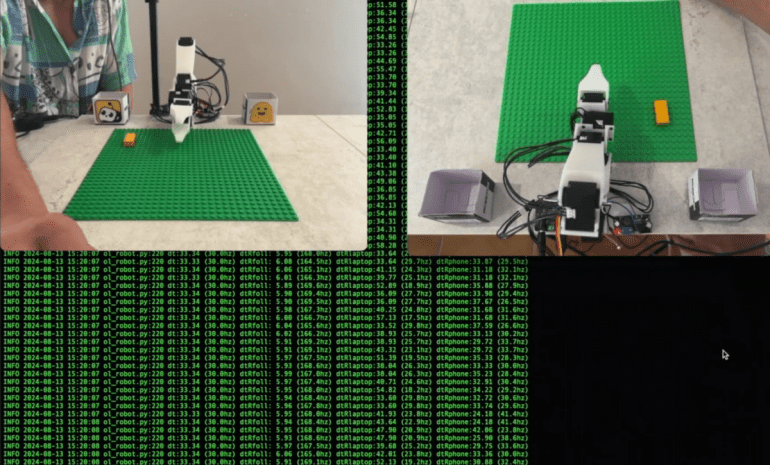- HuggingFace’s LeRobot initiative offers a comprehensive guide for building AI-controlled robots.
- The project aims to democratize AI robotics and strengthen the open-source community.
- The guide features the Koch v1.1 robot kit with dual arms and multi-camera capabilities.
- LeRobot plans to launch Moss v1, a more affordable and accessible robot model.
- The team is developing a foundational model to enhance AI generalization in robotics.
- The project offers an open-source alternative to proprietary models from major tech companies.
Main AI News:
LeRobot, an innovative open-source project from HuggingFace, is set to transform AI robotics with a detailed guide that walks users through the entire process of building AI-driven robots. Led by Remi Cadene, the initiative seeks to make AI robotics more accessible and to strengthen the open-source robotics community.
The guide focuses on the Koch v1.1 robot kit, which features dual arms with six motors each and can utilize multiple cameras for visual input. By providing a straightforward, step-by-step approach, LeRobot aims to lower the barriers to entry in AI robotics and inspire new developments in the field.
Cadene highlights the project’s goal to grow the robotics community and showcase the potential of open-source platforms like HuggingFace for quick iterations on robotic innovations. With AI models becoming more sophisticated and hardware costs falling, DIY AI robots could be the next significant evolution in AI technology.
Plans for LeRobot include the release of Moss v1, an even more affordable robot model priced at just $150, which will not require 3D printing. Additionally, the team is working on a “foundational model” for robotics designed to improve generalization and reduce reliance on consistent training data—a significant milestone for AI-powered robotics.
As tech giants like Google and OpenAI continue to develop their proprietary multimodal models, LeRobot’s open-source strategy offers a compelling alternative. This community-driven approach has the potential to accelerate advancements in AI robotics, positioning LeRobot as a critical player in the future of AI-powered machines.
Conclusion:
LeRobot’s open-source approach to AI robotics represents a significant shift in the market. By lowering the entry barriers and providing accessible tools and guidance, LeRobot is likely to drive increased innovation and participation in the AI robotics space. This nuance could challenge the dominance of proprietary models from larger companies like Google and OpenAI, fostering a more diverse and competitive landscape. As the market evolves, LeRobot’s strategy may lead to broader adoption of AI-driven robotics, pushing the industry towards rapid advancements and making AI-powered machines more accessible to a global audience.

